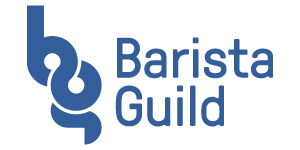Ground Rules, or An Ethic
 By Michael Sadler, Toby's Estate, Brooklyn, NY
By Michael Sadler, Toby's Estate, Brooklyn, NY
There are a lot of ways to make coffee.
As a coffee educator I spend a lot of my day sorting out the information people have previously been taught. Sometimes they bring myths which are easily dispelled, sometimes they present valid alternate methodologies, and sometimes they offer questions that, even in the industry, have yet to be answered.
I’ve often grappled with the best way to teach this craft, especially since most of it amounts to a set of moving targets. What I hope to do here is to present an ethic for educating the public on our industry, one which applies not only to educators, but to baristas, sales associates, and anyone who must talk about coffee. It’ll be easy to remember because I came up with an acronym: ETHIC.
Exactness
I was going to go with “Accuracy” or “Precision” but “ATHIC” and “PTHIC” aren’t a thing.
We need to be exact when describing the facts. Too often I’ve been exposed to one set of truths only to have those subverted by proof a month or a year later. The “fake-it-til-you-make-it” mentality gets short-terms results, and there’s a time for fudging it, but we do ourselves a disservice by taking advantage of our audience’s relative ignorance, or by simply following raw intuition.
We need science! We need numbers! Wait until the results are in, then share that information.
Thoroughness
 It is not sufficient to understand and present our own methodology or the handful to which we’ve been exposed. We need multiple perspectives to offer a holistic view on any coffee-related topic or technique.
It is not sufficient to understand and present our own methodology or the handful to which we’ve been exposed. We need multiple perspectives to offer a holistic view on any coffee-related topic or technique.
Do your research. If we are to be the experts, we need to see what else is being done. This doesn’t just apply to grasping the most advanced work out there. We need to understand all aspects of the history behind our methods, and to be open to multiplicity in technique. Understanding “less desirable” practices helps us grow in the direction of improving ours.
Our way is only the best way if it excels in context with others.
Honesty
Sometimes you just don’t know the answer.
It’s better to be honest than to make up an answer. There is a dignity in acknowledging the gaps in our understanding. It shows true confidence in your knowledge to be able to admit that it is incomplete.
Many a myth wouldn’t make it past the bar or classroom if we could step up and be honest when we don’t know.
And when we don’t know, we must employ…
Investigation
We have to dig deeper. In our labs and on our bars, we have to continue to explore and experiment.
The largest myth by far in coffee is that we’ve figured everything out. We are young in understanding this commodity. We must use every resource to delve further. Test variables. Be unsatisfied.
This extends far beyond the product we serve, back through roasting, sourcing, and cultivation. Exciting things are happening throughout the chain, and we must be diligent about tracking those changes, adapting, and pushing the envelope where we can.
Community
Sharing is caring! We have to look to our neighbors, be open about what we’ve learned, and be receptive to their findings.
On some level, many of us are in competition with each other. This is healthy, as it drives improvement. Ultimately, however, we are partners.
As coffee professionals, it is our duty to build our community and develop our practices and knowledge together. We can do this by attending industry events, by seeking out other coffee professionals in all fields, and by making accessible to each other as much as we feasibly can.
We must be open with the public and share as much as possible with them as well.
We’ve barely begun to figure out coffee. We become obsessed with certain techniques. Case in point, espresso, a brewing method which (as a student so eloquently put it) was a “technological accident.” We pose and posture. It is hubris to think that just being on the inside makes us the authority on coffee.
True learning happens when we become versed on the current set of rules, then smash them to bits. I look forward to the advances we’ll make in the coming decades, as the public becomes better educated and we become more humble.
Be ever vigilant. You are the expert, so prove it.
Photos: Toby's Estate Brooklyn
